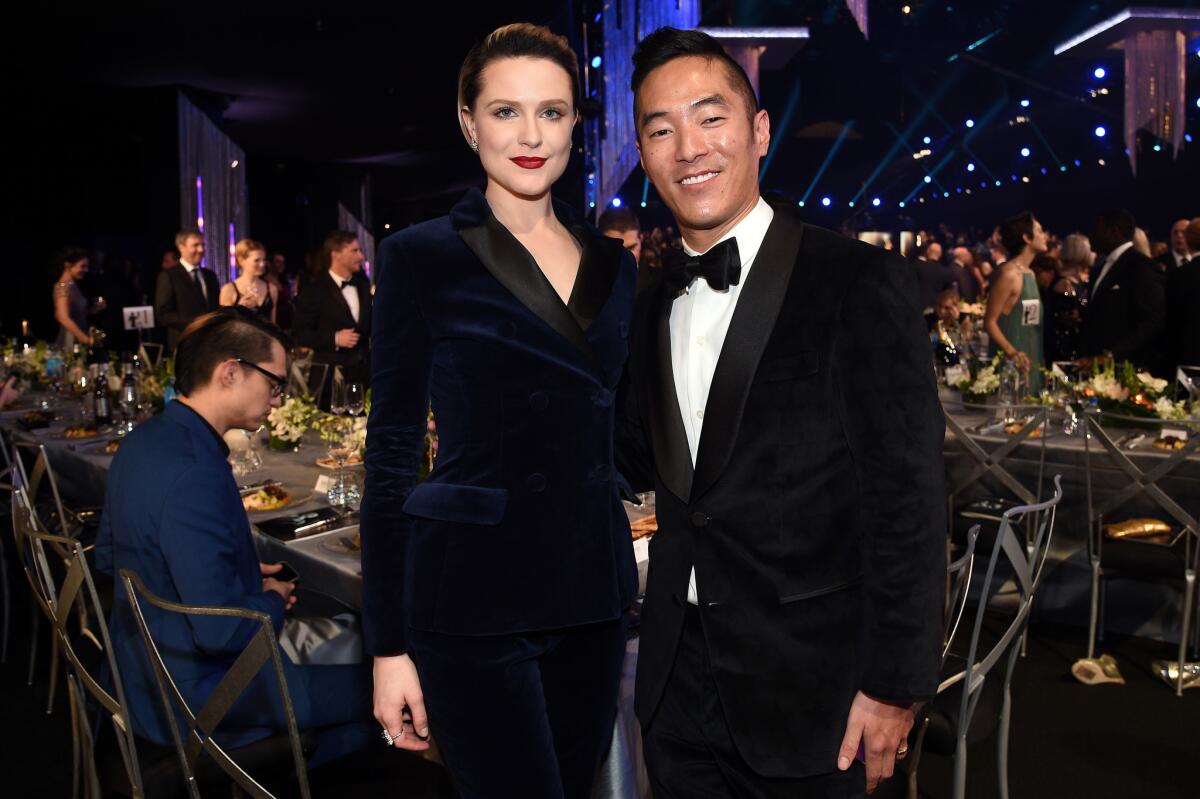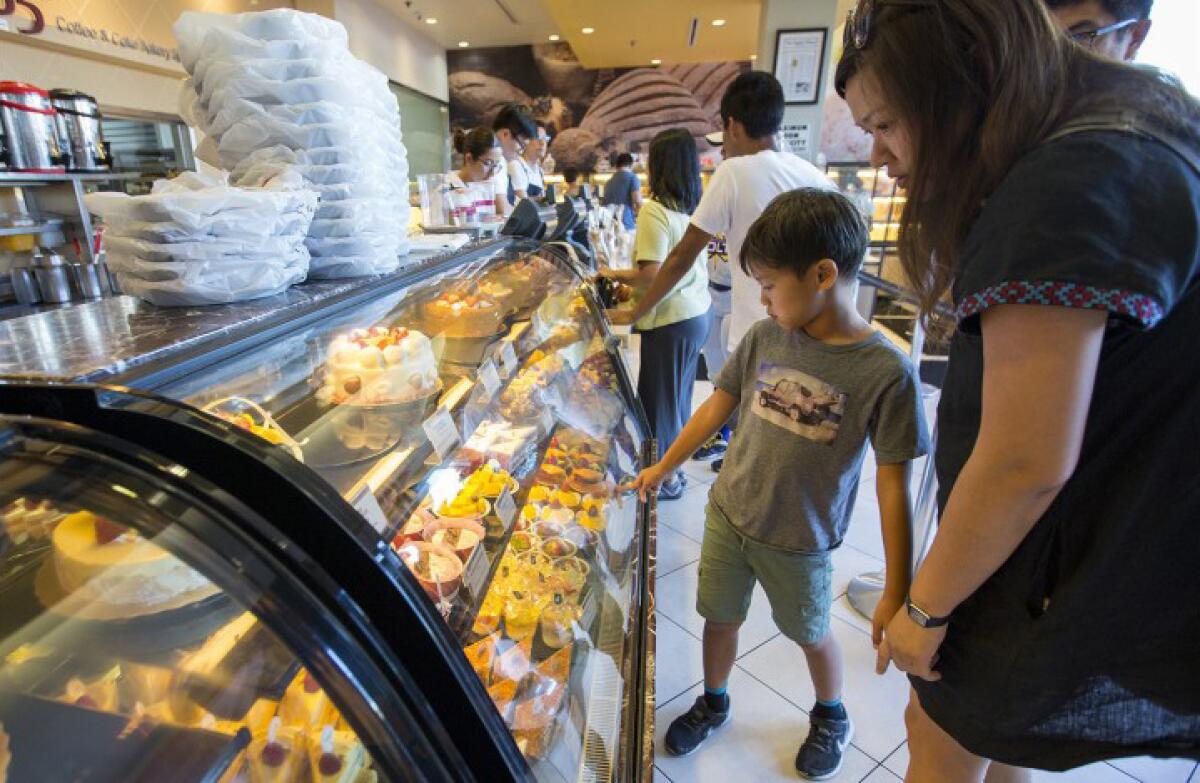‘Interior Chinatown’ author Charles Yu reflects on the Asian American experience and living in Irvine
- Share via
Willis Wu has always dreamed of becoming a star.
The fictional actor, who lives in a single-room occupancy above the Golden Palace restaurant in Chinatown, where he’s also a bit player in a police procedural TV show, hopes he’ll finally catch his big break and land a role as Kung Fu Guy. Instead, he’s only ever cast as Background Oriental Male, Dead Asian Man or Generic Asian Man Number One.
Even after winning a role as Special Guest Star, Willis Wu’s dreams are cut short.
“To be yellow in America,” he says. “A special guest star, forever the guest.”
Willis Wu is the protagonist of the new satirical novel “Interior Chinatown,” published in January, which explores racism and the Asian American experience through the lens of a television drama.
Irvine-based author Charles Yu — who has also written for HBO’s “Westworld” as well as other TV shows on FX and AMC — said the story was inspired in part from his own experience living in Southern California as the son of Taiwanese immigrants.
“There was just the feeling like I never quite knew what my place was,” he said of growing up in Los Angeles. “I never really felt like I was in the center of the action. And I felt like that might be a way to think about how not just the Asian American experience feels, but maybe as a lens to look at racial dynamics in a larger sense.”
As a television writer, Yu said he didn’t encounter the obvious stereotyping that occurs throughout “Interior Chinatown.” (Willis Wu’s lines include, “I did it for my family’s honor, officer,” and “I have disgraced my family, and now I must pay the price.”)
But the scarcity of Asian characters made him feel like he had to write a certain way.
“You have so few chances to have an Asian character on screen, especially an Asian male,” Yu said. “So it feels like there’s pressure on that character, so it’s, how do I make sure this is responsible, but also a cool TV character too, and it feels like a lot to pack into one role.”

Irvine, a city whose population is 45 percent Asian American, is the largest city in the continental U.S. with an Asian American plurality.
“It feels like a version of America that my parents probably dreamed of,” he said.
While calling Irvine a place of “assimilation” and “comfort,” Yu said that he now watches his own young children grappling with some of the same questions of identity and belonging that he once did — which he said also informed the themes in his novel.
“I’m seeing that they’re basically in a position not too different from where I was as a kid,” he said. “They’re growing up in a very different world, but they’re going to have to deal with some of the same kinds of stuff, and that made me think about, what is it about Asian Americans and how they fit in, or will we ever feel like we fully fit in?”

But in the years since Yu started writing “Interior Chinatown,” he said Hollywood has done a better job centering stories about Asian Americans.
The framework for his novel came from watching old cop procedurals, Yu said, which often exoticize the location of Chinatown and feature Chinese Americans like Willis Wu as extras, but rarely as stars of the show. (BD Wong, who for years played Dr. George Huang on “Law & Order: Special Victims Unit,” is one notable exception, he said.)
Now, movies such as “Crazy Rich Asians,” “The Farewell” and “Always Be My Maybe,” as well as television shows such as “Fresh Off the Boat,” have put Asian Americans in the spotlight.
Near the end of the novel, Willis Wu says, “If someone showed you my picture on the street, how would you describe it? You might say, an Asian fellow. An Asian dude. Asian Man. How many of you would say: that’s an American?”
Perhaps that’s starting to change.
All the latest on Orange County from Orange County.
Get our free TimesOC newsletter.
You may occasionally receive promotional content from the Daily Pilot.




